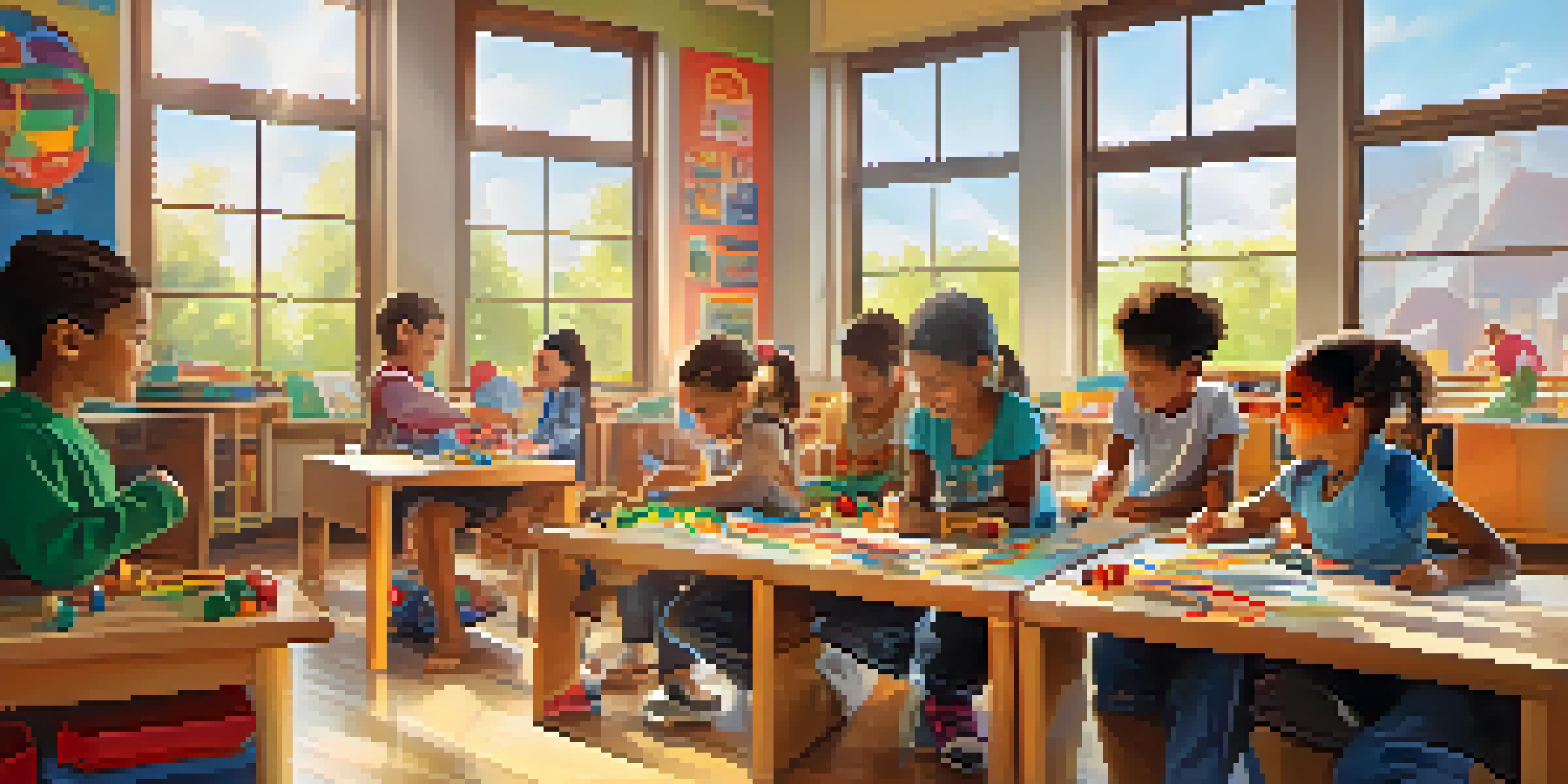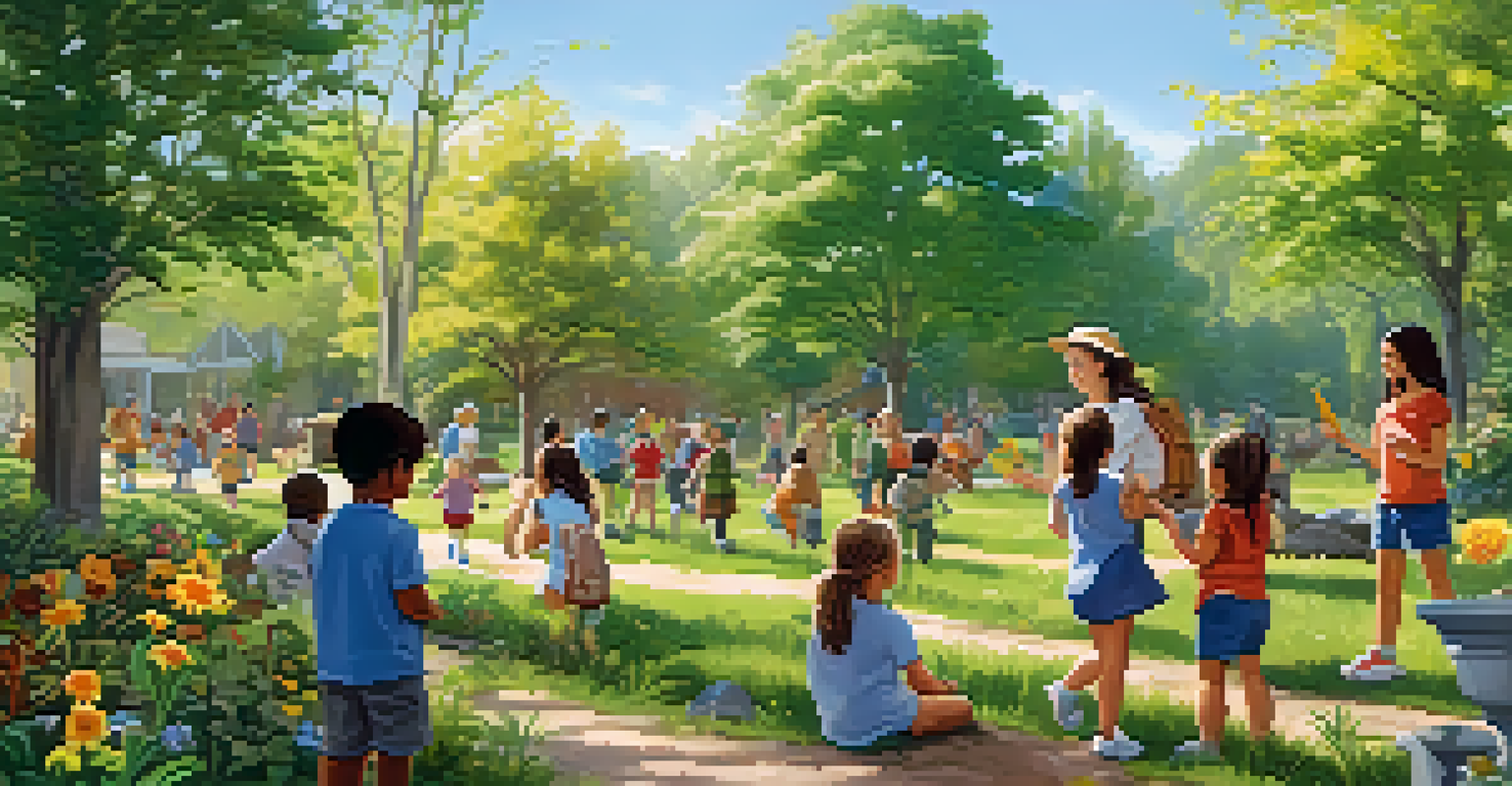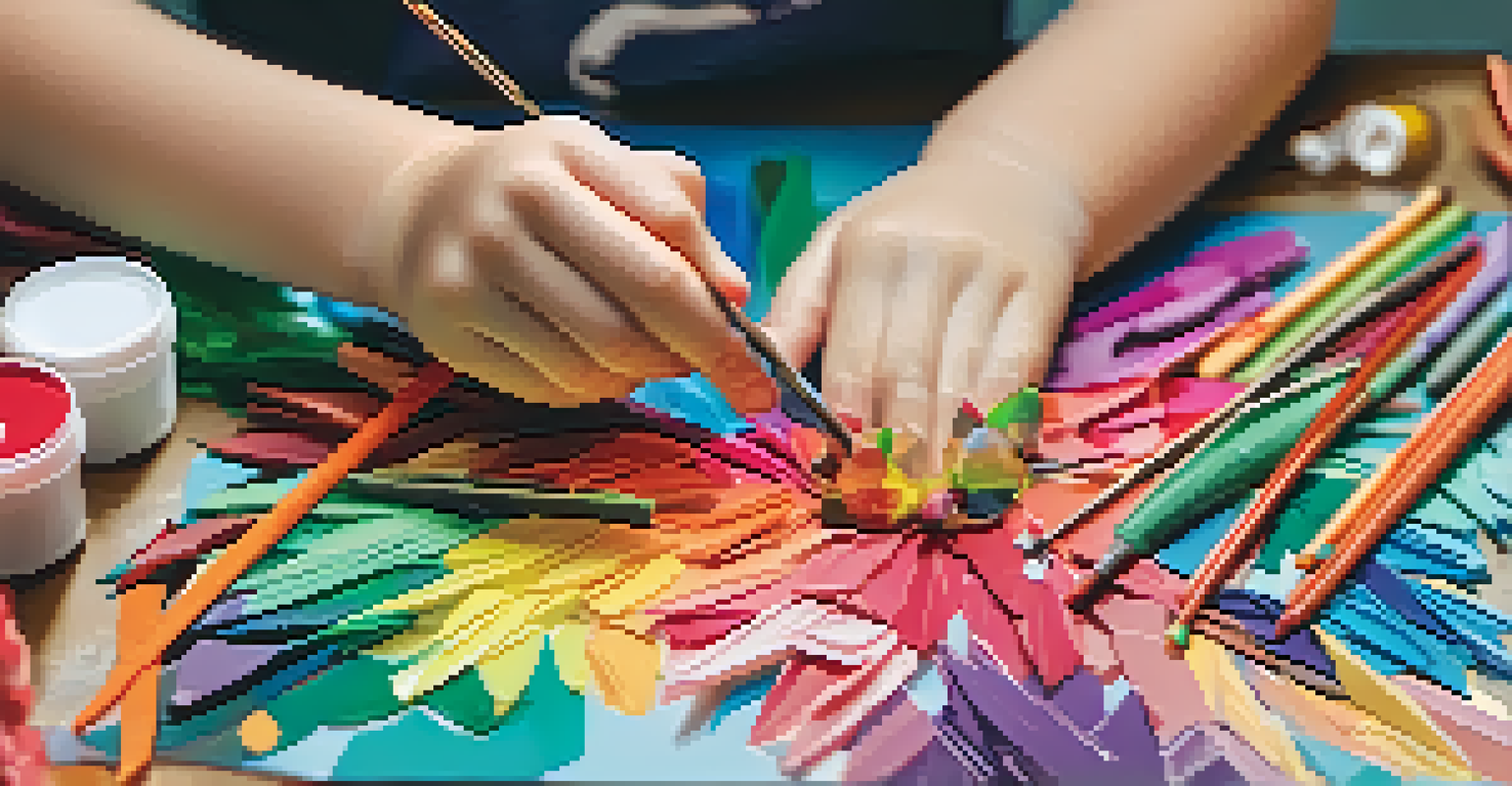The Connection Between Playfulness and Academic Performance

Understanding Playfulness in Learning Environments
Playfulness is often seen as mere fun, but it plays a vital role in learning. It involves a light-hearted approach that encourages creativity and exploration. When students engage in playful activities, they are more likely to experiment with new ideas and concepts, leading to deeper learning.
Play is the highest form of research.
In classrooms that embrace playfulness, students feel more comfortable taking risks. This comfort fosters an environment where mistakes are seen as learning opportunities rather than failures. Such an atmosphere can ignite a passion for learning that extends beyond the classroom.
Moreover, playfulness can break down barriers between students and teachers, making the educational experience more collaborative. This collaboration, in turn, can enhance academic performance as students feel more connected and engaged.
The Psychological Benefits of Playfulness
Engaging in playful activities can significantly reduce stress and anxiety among students. When students are less anxious, they can focus better on their studies, leading to improved academic outcomes. This is particularly important in high-pressure environments like exams or competitive settings.

Additionally, playfulness encourages positive emotional states that enhance cognitive processes. For instance, when students are happy and relaxed, their brains are more receptive to new information. This emotional boost can result in better retention and understanding of complex subjects.
Playfulness Enhances Learning
A playful approach in learning environments encourages creativity, risk-taking, and deeper engagement among students.
Furthermore, playfulness promotes resilience. Students who learn to embrace a playful mindset are more likely to bounce back from setbacks, making them more persistent in their academic pursuits. This resilience is a key factor in long-term academic success.
Creativity and Critical Thinking Through Play
Playful learning activities, such as games or role-playing, stimulate creativity. When students engage in these activities, they are encouraged to think outside the box, leading to innovative problem-solving skills. This creativity is invaluable in academic settings where unique solutions are often required.
The greatest gifts you can give your children are the roots of responsibility and the wings of independence.
Moreover, playfulness nurtures critical thinking by presenting challenges in a fun way. Students learn to analyze situations, evaluate outcomes, and make decisions, all while enjoying the process. These skills are crucial not just for academic performance but also for real-world applications.
In essence, playful learning transforms traditional subjects into exciting challenges. When students view their studies as a game rather than a chore, they are more likely to engage deeply, resulting in better academic performance.
Social Skills and Academic Achievement
Playfulness also enhances social skills, which are essential for collaborative learning. Activities that involve teamwork promote communication and relationship-building among students. These social interactions can lead to a supportive learning environment that boosts academic performance.
In group settings, playful activities can help students develop empathy and understanding. Learning to work with others fosters a sense of community, making students feel valued and connected. This connection can increase motivation and commitment to academic tasks.
Social Skills Boost Academic Success
Engaging in playful activities promotes teamwork and communication, leading to improved social skills and academic performance.
Moreover, strong social skills can lead to better networking opportunities in academic and professional realms. Students who are comfortable interacting with peers and teachers are likely to seek help and resources, further enhancing their academic success.
The Role of Play in Early Childhood Education
In early childhood education, play is often the primary mode of learning. Young children learn best through hands-on experiences, and playful activities are essential for their cognitive development. This foundational learning sets the stage for future academic success.
Research shows that children who engage in playful learning exhibit better problem-solving skills and creativity. These early experiences shape their attitudes towards learning and can influence their academic trajectories. The benefits of play in early education are long-lasting.
Furthermore, play in early childhood fosters a love for learning. When children associate learning with fun and joy, they are more likely to continue pursuing education throughout their lives. This lifelong love of learning is a key factor in academic achievement.
Integrating Playfulness into Academic Curricula
Integrating playful elements into academic curricula can transform traditional teaching methods. Educators can incorporate games, group projects, and creative activities to make learning more engaging. This shift can lead to a more positive classroom atmosphere and improved student outcomes.
Teachers can also encourage students to bring their interests into their learning. By allowing students to explore topics they are passionate about in a playful manner, educators foster intrinsic motivation. This motivation can lead to higher levels of engagement and better academic performance.
Play is Key in Early Education
Playful learning in early childhood is crucial for cognitive development and fosters a lifelong love for education.
Moreover, integrating playfulness doesn’t mean sacrificing academic rigor. Instead, it enhances it by making complex subjects more accessible and enjoyable. This balance can lead to a richer educational experience that benefits both students and teachers.
Challenges and Misconceptions About Playfulness
Despite the benefits, some educators and parents may view playfulness as frivolous or distracting. This misconception can hinder the integration of playful learning methods in academic settings. It's important to understand that playfulness is not just about fun; it's a powerful tool for learning.
Another challenge is the pressure on students to perform academically. In a high-stakes environment, the emphasis on grades can overshadow the value of playful learning. Encouraging a balance between academic achievement and playfulness is essential for student well-being.

Addressing these challenges requires a cultural shift in how we perceive education. By recognizing the value of playfulness, we can create learning environments that prioritize both academic success and emotional health.